When the Mentally Ill Are Arrested In Texas
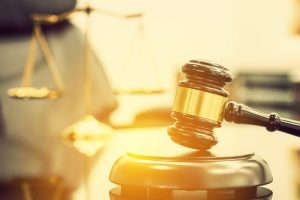 It's always tough to find out that a
family member or friend has been
arrested. But it can be especially
difficult when that friend or family
member is struggling with mental
illness.
It's always tough to find out that a
family member or friend has been
arrested. But it can be especially
difficult when that friend or family
member is struggling with mental
illness.
Law enforcement is not well-equipped to treat mentally ill offenders. Often, an arrest can turn into a downward spiral for someone who is mentally ill. Incarcerated people with mental illness are at a higher risk of being sexually abused than those without mental health issues, according to a recent NPR report that cites federal data. If isolated to avoid contact with an abuser, the inmate's mental illness may worsen, research finds.
The United States has a sizeable population of inmates who experience mental illness:
- About 500,000 people in the U.S. are incarcerated.
- More than 40 percent of jail inmates have been told by a mental health professional at some point in their lives they have mental illness.
- Twenty-five percent of jail inmates meet the threshold for having serious psychological distress, but only one-third of them receive treatment for the condition.
What type of help is available for mentally ill people who are arrested?
Some people with serious mental illness end up in and out of the criminal justice system. The jails in effect become a community's largest mental health facility. But unlike hospitals, jails are not equipped to offer proper access to medication and treatment. A mentally ill inmate who experiences an episode related to schizophrenia or another condition may end up in isolation.
Recognizing the problem, many county jails in the United States are increasing mental health screening efforts and taking steps to get inmates treatment after they are released. The jails are working with mental health facilities, which research has found is an effective way to help inmates.
Efforts are under way to reduce the number of inmates who are dealing with mental health issues. The Stepping Up Initiative was started in 2015 to reduce that number. More than 450 counties have passed resolutions to join the national initiative, launched by the Council of State Governments (CSG) Justice Center, the National Association of Counties and the American Psychiatric Association Foundation.
What to do if your friend or loved one is arrested
Every day, someone with mental illness is arrested. And often, the person is back before a judge because they did not receive proper treatment for their condition.
We have represented a range of people charged with crimes, including those with mental illness. People struggling with mental illness need treatment for their condition, not incarceration.
Contact us today for a consultation today if you, a friend or loved one has a mental illness and was arrested. Learn more about how we can help protect your rights.





 In today's world, it is nearly
impossible for some people to refrain
from using social media. If you have
been charged with a crime such as DWI,
or are under investigation, it's
important to understand the impact your
Internet activity can have on your
case.
In today's world, it is nearly
impossible for some people to refrain
from using social media. If you have
been charged with a crime such as DWI,
or are under investigation, it's
important to understand the impact your
Internet activity can have on your
case. 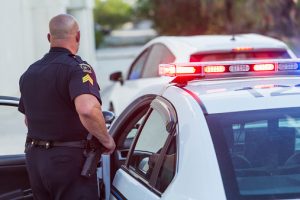 When arrested for a DWI, many drivers
focus on only the worst consequence –
going to jail. If incarceration is not
imposed, then a combination of probation
and a hefty set of fines is almost
always the penalty. But along with that
goes another possible loss of freedom:
the loss of your license to drive. And
your license will be affected even
before you appear in court.
When arrested for a DWI, many drivers
focus on only the worst consequence –
going to jail. If incarceration is not
imposed, then a combination of probation
and a hefty set of fines is almost
always the penalty. But along with that
goes another possible loss of freedom:
the loss of your license to drive. And
your license will be affected even
before you appear in court.
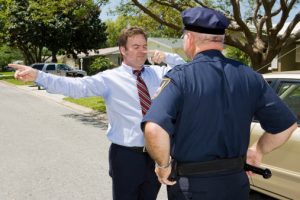 Texas police officers receive
Texas police officers receive
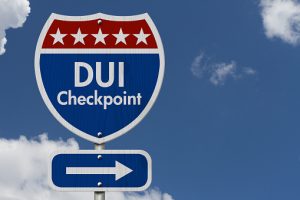 You've had a couple of drinks. You are
stopped at a DWI checkpoint on a Texas
roadway. You've been caught and might as
well accept your fate, right? Wrong.
You've had a couple of drinks. You are
stopped at a DWI checkpoint on a Texas
roadway. You've been caught and might as
well accept your fate, right? Wrong.
 Across Texas, campus police are
cracking down on student drinking. In
many cases, that means they are
targeting students who drink and drive.
Across Texas, campus police are
cracking down on student drinking. In
many cases, that means they are
targeting students who drink and drive.
 The Fifth Amendment to the United
States Constitution protects
Americans from being forced to
incriminate themselves by the
government. This right is so
important that it has been
incorporated into the well-known
Miranda Warnings, which must be read
to a suspect before he or she may be
questioned by law enforcement
officers.
The Fifth Amendment to the United
States Constitution protects
Americans from being forced to
incriminate themselves by the
government. This right is so
important that it has been
incorporated into the well-known
Miranda Warnings, which must be read
to a suspect before he or she may be
questioned by law enforcement
officers.
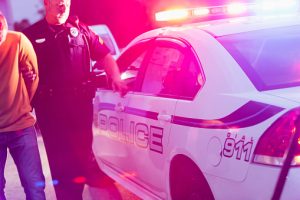 For some Texas motorists, the
post-holiday blues include drunk driving
charges.
For some Texas motorists, the
post-holiday blues include drunk driving
charges.
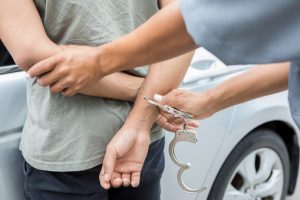 The overwhelming experience of an
arrest can be made even more
confusing and overwhelming when a
suspect does not know what to do. By
learning about the arrest process
and what to do – and more
importantly, what
The overwhelming experience of an
arrest can be made even more
confusing and overwhelming when a
suspect does not know what to do. By
learning about the arrest process
and what to do – and more
importantly, what 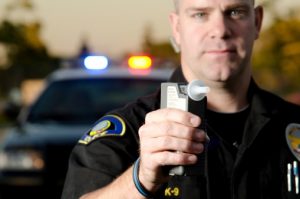 Law enforcement agencies across Texas
step up DWI enforcement efforts during
the holidays. Drivers should be prepared
for this enforcement, and understand
their rights if they do encounter police
on the road after consuming alcohol.
Law enforcement agencies across Texas
step up DWI enforcement efforts during
the holidays. Drivers should be prepared
for this enforcement, and understand
their rights if they do encounter police
on the road after consuming alcohol.

